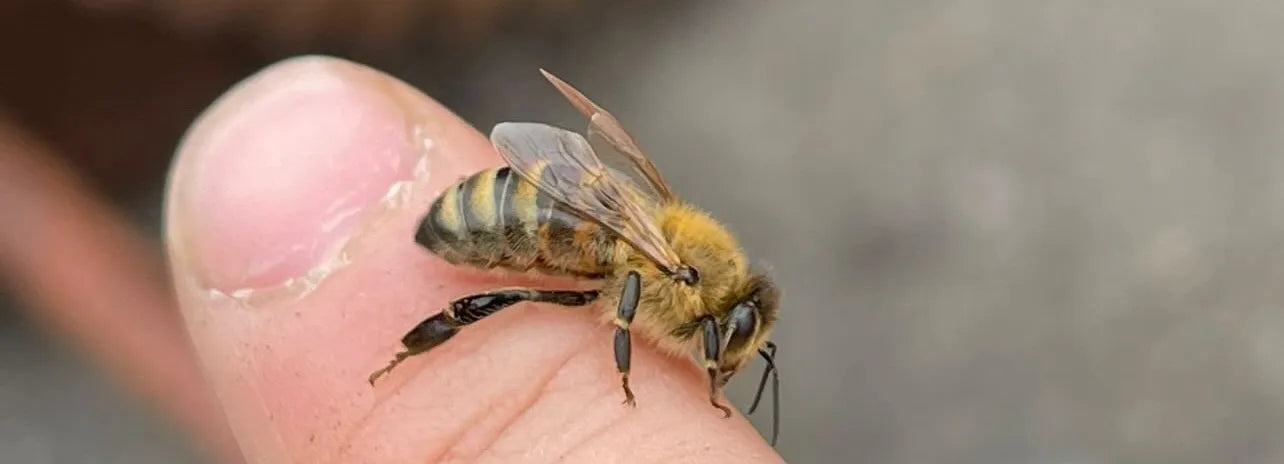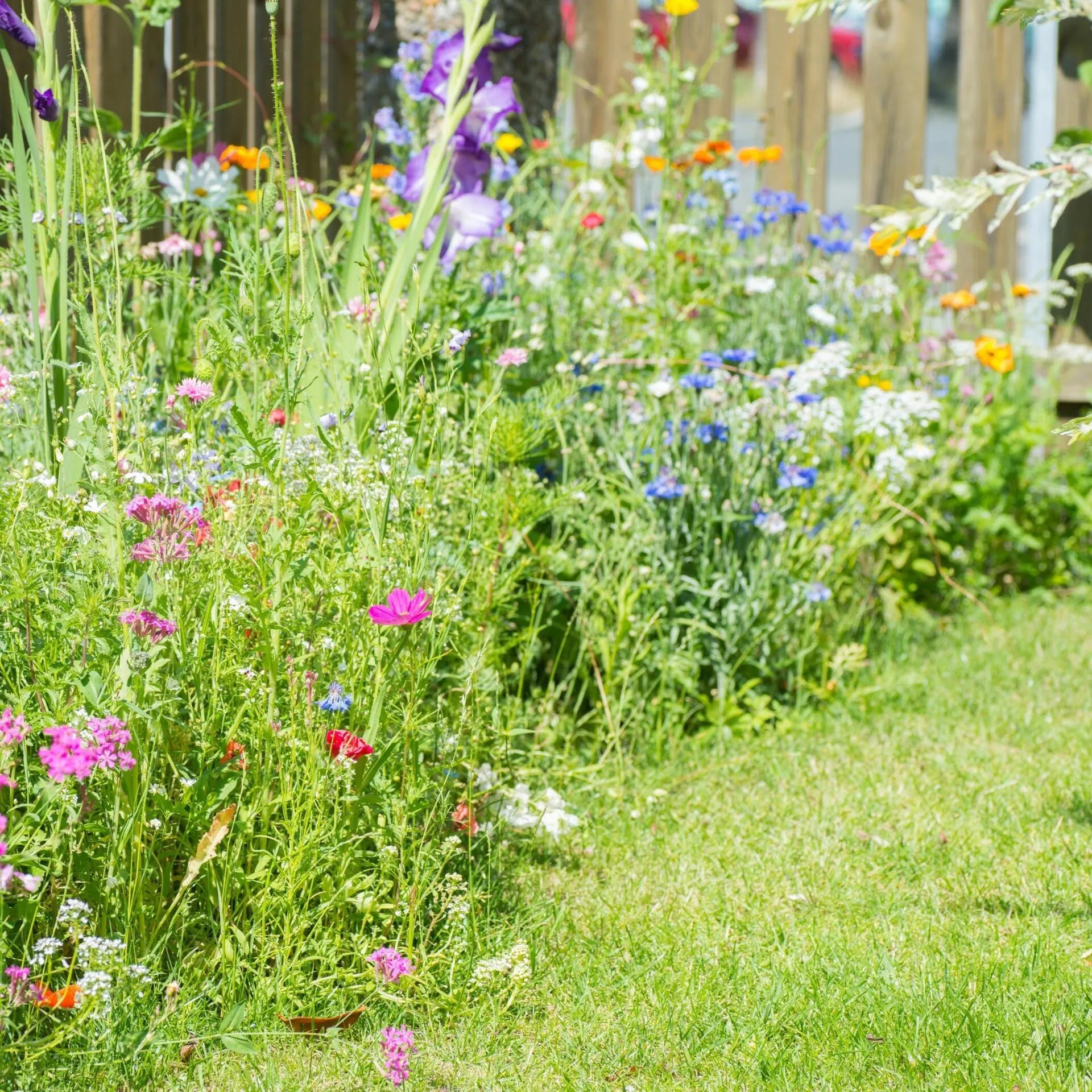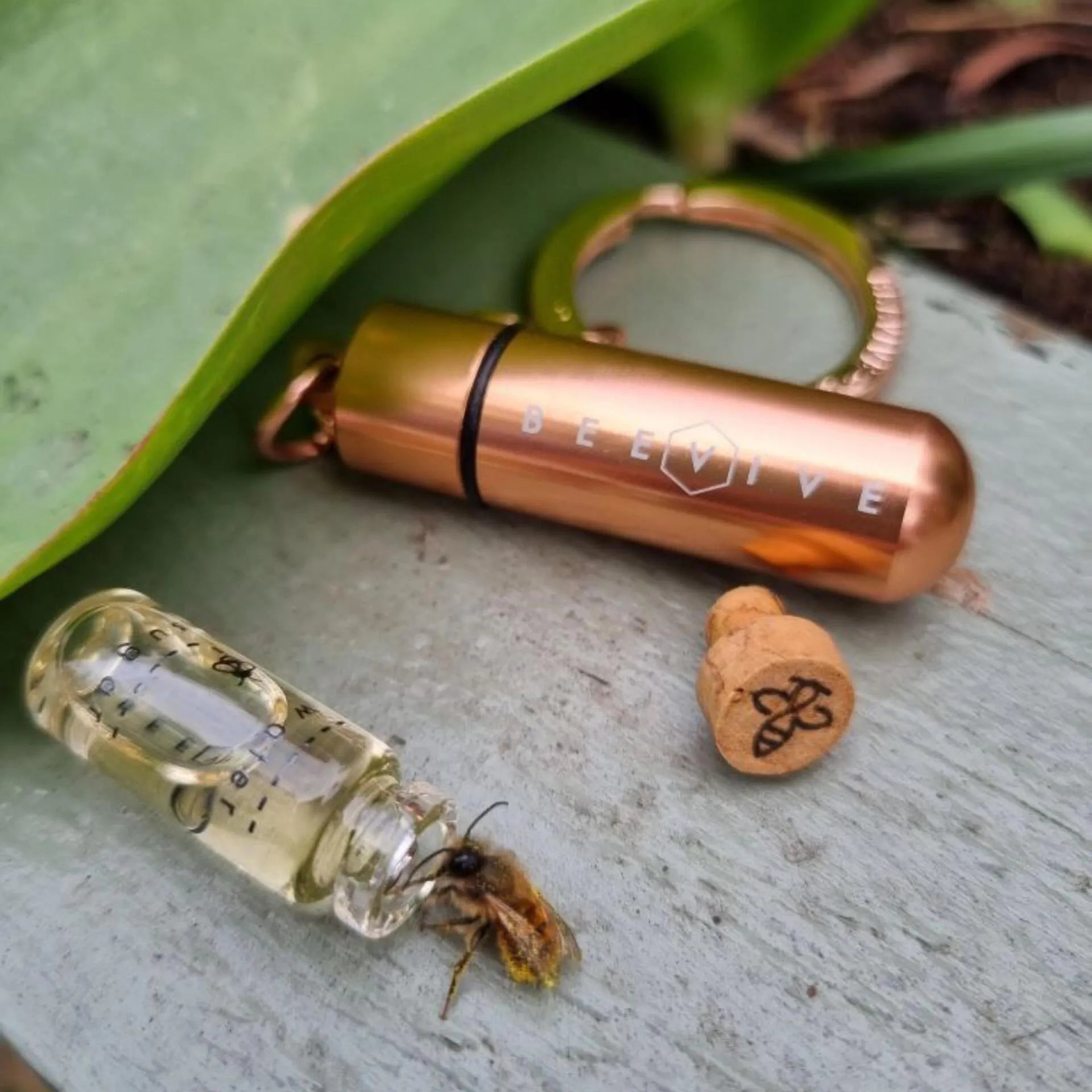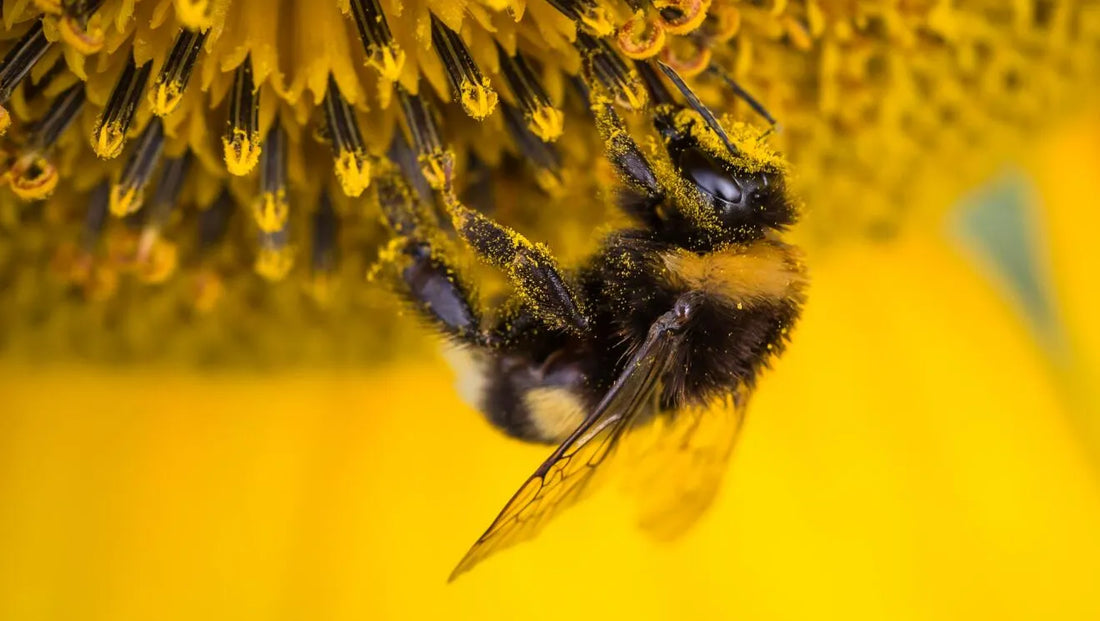You have heard it before, our bees are in decline and we need to protect them.
Recent studies have found that the UK's flying insects have declined by almost 60% in under 20 years. Climate change, invasive species, parasites, and diseases are some of the culprits. More significantly, we have lost 97% of our wildflower meadows habitats since WW2 and the 2022 re-introduction of banned pesticides is killing them off further. But why are bees so important?Our Fuzzy Pollinators
A life without bees would drastically affect the agricultural industry and our ability to get food. And it's not just honeybees. There are many plants pollinated by different bees and in total, they pollinate 80% of our flowering plants!
All this work contributes billions of cash to the world's economy. Though it's almost impossible to calculate the value of bees, the United Nations have estimated that insect pollination would cost the UK £134 billion.
 Photo by community member @marvis_the_moris.
Photo by community member @marvis_the_moris.
Food Webs, Trees and Biodiversity
Without bees, many ecosystems would collapse as animals rely on the plants and trees that they pollinate for food sources and habitats.
Bees knit food webs together by collecting and storing nectar from plants to create honey. Solitary, social bees and their honey are then a food source too for many other animals such as birds, spiders, bears, badgers, skunks, weasels and field mice etc. But don't worry! Bees are a natural food source for these animals and are a crucial part of supporting food webs.
Our Environmental Health
So how do bees help the environment health-wise?
Bees are great indicators of our environment's health. Honey can be studied over time for signs of pollution and there is a whole career of bee-keeping that monitors bees' wellbeing. This gives us plenty of data to know how healthy the environment is, especially since bee colonies can last for years.
Did you know they do a waggle dance that helps us too?
This ‘dance' is when a honeybee communicates with its colony where the best food is located, and ultimately highlights the most fruitful areas for pollinators.
Saving Elephant and Human Lives
In Africa, bees are supporting local farms by protecting them from raiding elephants.
Beehives are set up on the boundaries of farms and connected by a metal wire. When the elephants come through it shakes the hives and makes the bees buzz loudly, which scares the elephants away.
It is an amazing method as it stops elephants from being killed and people putting their lives at risk to protect their livelihoods. It also helps pollinate the surrounding crops and creates another income of “Elephant-Friendly Honey” for the locals. There has been an 80-85% success rate for these projects so far.
Sniffing Out Bombs
You heard us right. Bees are helping to sniff out landmines too.
This is great news for places like Croatia which has about 30,000 landmines from the Balkans war, with Herzegovina and Bosnia with 80,000 active landmines. The bees detect the scent of the TNT through their antennae, which the scientists have associated with a sugar solution. When they cluster in one area, scientists can map out the bees' paths using drones.
There is still development to be done here, but some studies show an 80% accuracy rate so far and it protects human lives without harming any bees either.
And it's not just bombs that bees can sniff out.
Detecting Cancer
There is also progress being made in cancer diagnoses as bees can detect cancer and other human illnesses.
The Portuguese scientist Susana Soares used this research to create a glass device made of 2 chambers where the bees learn to associate the smell of cancer with sugar and can pick it up on the patient's breath by the bees' olfactory glands. Soares even states she can train bees in this inexpensive and sustainable method within 10 minutes!
So, now we know why bees are important, how can you help them?

1) Plant Bee-Friendly Flowers & Habitats
Bee-friendly plants like buddleia, knapweeds and sunflowers are rich in pollen and nectar and give bees space to build their bee houses. You can pop into your local garden centre or plant seed balls to find the best plants to attract bees.
You can also create bee homes. Learn how to make your own DIY one or get a ready-made bee hotel from us!

2) Stop Using Synthetic Pesticides
Once you have your bee-friendly garden, you don't want to harm our fuzzy friends with pesticides!
Switch out those toxic pesticides for organic ones such as corn gluten, bacillus thuringiensis and kaolin clay. You can support food webs by using ladybirds to feed on pesky aphids or pick off the bugs and grubs the old-fashioned way!

3) Bee on the Lookout
Tired bees are a common sighting in the city.
If you come across a slow-moving bee on the ground, look to move her to a flower. If this doesn't perk her up, offer her some sugar solution. You can make some with 2:1 tablespoons of granulated white sugar to water or you can use our Bee Revival Kit.
The importance of bees is clear: a world without bees would be tragic. We need to protect them for their own sake, but also for ours and all the ecosystems that depend on their hard work as our chief pollinators.
Now, go get saving!


